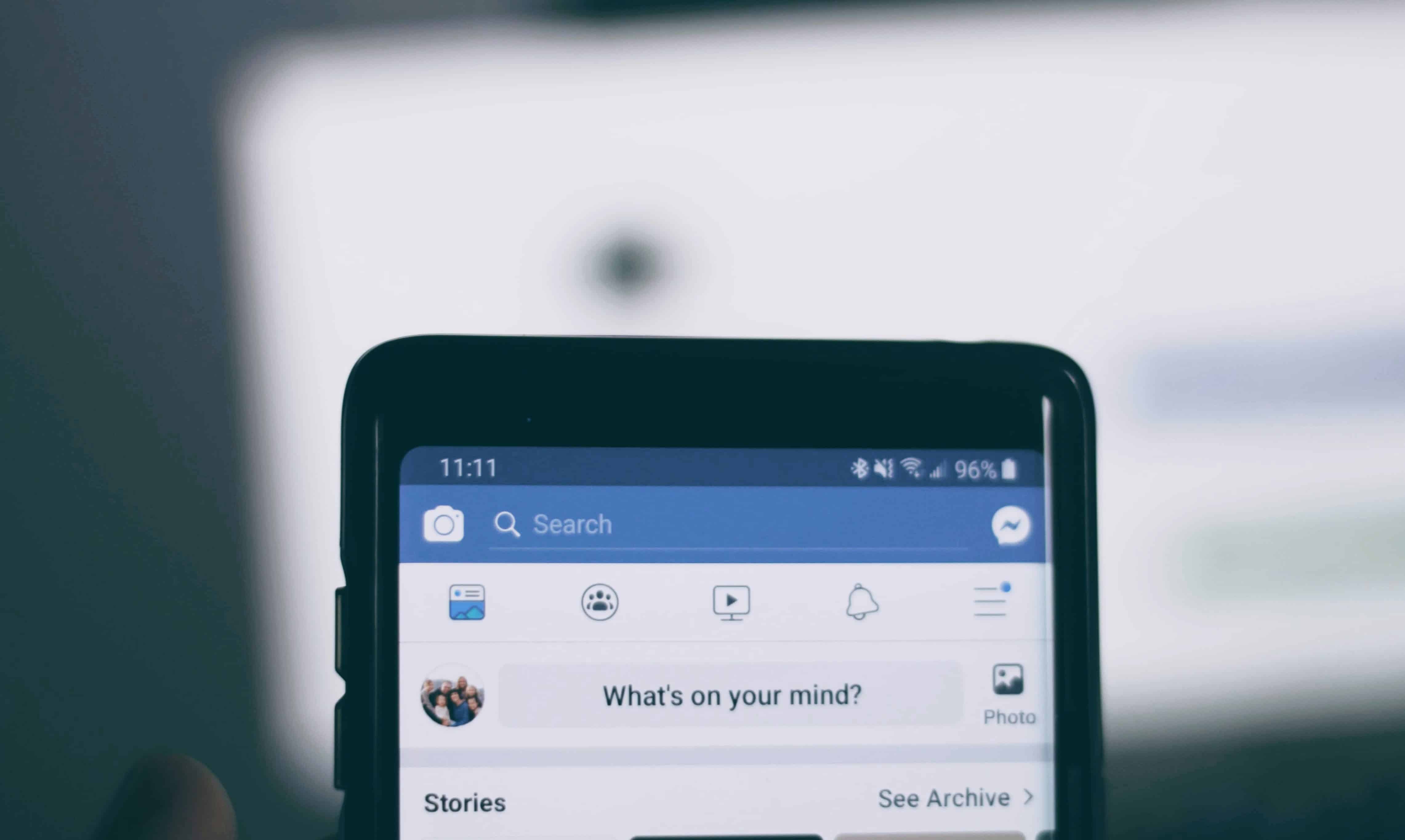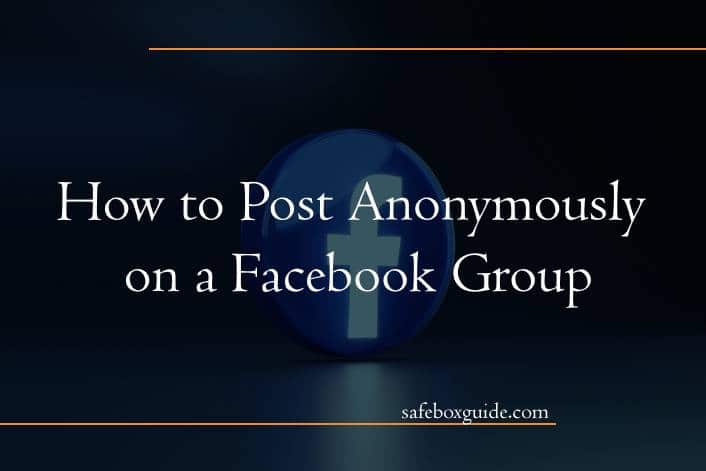In an era where online privacy feels increasingly elusive, the desire to share thoughts and experiences without revealing one’s identity has never been more pertinent. Imagine being able to voice your opinions, seek advice, or share personal stories within a vibrant Facebook group while maintaining the cloak of anonymity. This digital disguise opens up a world of possibilities—freeing you from the fear of judgment and allowing for unfiltered conversations on topics that resonate deeply.
Whether you’re navigating sensitive issues like mental health, seeking support for niche hobbies, or simply wanting to engage in lively discussions without linking back to your personal profile, posting anonymously can be a game changer. However, many users are unaware of how to achieve this feat effectively within Facebook’s ecosystem. In this article, we’ll explore practical methods and essential tips for participating in Facebook groups incognito—empowering you to connect with others authentically while safeguarding your privacy in an ever-watchful online landscape.
Contents
Benefits of Posting Anonymously on Facebook
Posting anonymously on Facebook can unlock a new realm of authentic expression that many users may find liberating. This form of sharing allows individuals to voice their opinions, struggles, and experiences without the fear of judgment from friends, family, or colleagues. When users can detach their identity from their thoughts, they’re more likely to engage in candid discussions about sensitive topics such as mental health, personal challenges, or controversial issues that are often stigmatized in everyday conversations.
Additionally, anonymity fosters a sense of community and support among group members. It creates an environment where vulnerability is welcomed and empathy thrives. Users who might typically shy away from participating in discussions may feel encouraged to contribute when they know their identities remain concealed. This not only enriches the conversation but promotes diverse viewpoints that could lead to deeper understanding and connection among members who share similar interests or faced challenges yet have differing perspectives on solutions. In this way, anonymity can transform Facebook groups into safe havens for genuine interaction and collective healing.

Creating a Fake Account: Is It Worth It?
Creating a fake account to post anonymously in a Facebook group might seem like an appealing shortcut to express your thoughts without judgment, but there are some significant repercussions to consider. Firstly, while anonymity may offer a veil of protection, it can also breed an environment where toxic or harmful behavior flourishes. Users behind fake profiles often feel emboldened to make disparaging comments or share misinformation without consequences, which can dilute the quality of discussions and tarnish the group’s credibility.
Additionally, with growing awareness around online privacy and authenticity, administrators of these groups may employ stricter measures to identify and remove fake accounts. This not only risks your temporary anonymity but also potentially leads to account bans that hinder future participation in communities you care about. Instead of resorting to insincerity, consider more authentic ways to engage: use pseudonyms that maintain your privacy while still allowing for genuine interaction. A thoughtful approach could foster meaningful dialogue and establish trust among other members who appreciate honesty in online discourse. Ultimately, weighing the short-lived allure of a fake identity against the long-term value of contributing positively could redefine how you connect in these digital spaces.
Utilizing Facebook’s Anonymous Posting Feature
Facebook’s Anonymous Posting feature offers a unique opportunity for individuals wanting to express opinions without the weight of identification. This functionality empowers users to share their thoughts in groups where sensitive topics are discussed, fostering open dialogue that might otherwise be stifled by fear of judgment. By allowing anonymity, members can voice concerns or questions about personal experiences—ranging from health issues to social dilemmas—creating a safe space that encourages honesty and support.
However, it’s essential to navigate this feature mindfully. While anonymity can liberate expression, it also carries the risk of irresponsible posting. Engaging constructively means embracing accountability; users should focus on adding value rather than just airing grievances. Groups benefit most when participants share genuine insights or constructive feedback, thus enhancing the overall discourse within the community. Ultimately, utilizing Facebook’s Anonymous Posting can not only change how discussions unfold but also empower users to contribute meaningfully without compromising their comfort levels—or let fears hold back important conversations.

Joining Groups with Anonymous Posting Options
Joining groups with anonymous posting options can significantly enhance your online experience, particularly in spaces where sensitive topics are discussed. Imagine being part of a community that provides the support and advice you seek without the fear of judgment or exposure. This anonymity fosters a more open dialogue, allowing members to share their stories and struggles candidly, which can lead to deeper connections and understanding among group members.
Moreover, these groups often act as safe havens for individuals navigating personal issues—be it mental health challenges, relationship dynamics, or social anxieties. By removing the barrier of identity, participants feel empowered to engage in meaningful conversations without the hesitation that might otherwise come from revealing their true selves. Such environments not only promote honesty but also create an atmosphere where empathy flourishes, transforming each post into an opportunity for healing and growth.
Participating anonymously can also encourage diverse perspectives within discussions. When individuals know they’re shielded from scrutiny, they’re more likely to express unconventional opinions or share unique experiences that may challenge mainstream thinking. This variation adds richness to the dialogue and sparks innovative ideas that could inspire others facing similar situations—underscoring the notion that sometimes vulnerability is best expressed when protected by a veil of anonymity.
Respecting Group Rules and Community Guidelines
When participating in a Facebook group, respecting the established rules and community guidelines is essential not just for your anonymity but also for fostering a healthy interactive environment. Each group comprises individuals with unique perspectives and experiences, meaning that adherence to the guidelines ensures that all voices can be heard without diminishing anyone’s contribution. By understanding these rules, you demonstrate respect and an appreciation for the collective values of the group, which can lead to richer conversations and deeper connections with fellow members.
Moreover, embracing these community standards helps maintain the integrity of the space—promoting trust among members who might be sharing sensitive information or seeking support on personal matters. When everyone adheres to guidelines regarding posts, comments, and behavior, it cultivates an atmosphere where people feel safe engaging openly. Remember that your actions reflect not only on you but also on the larger community; being mindful of this dynamic enhances everyone’s experience. Ultimately, by upholding group norms while navigating anonymously, you contribute positively to the very essence of what makes online communities thrive: connection and understanding in a respectful setting.

How to Maintain Privacy in Your Posts
Maintaining privacy in your posts, especially within Facebook groups, is crucial for fostering an open and honest conversation while protecting your identity. One of the most effective ways to enhance your privacy is by carefully curating the information you share. Consider using a pseudonym that feels authentic to you but doesn’t reveal personal identifiers. Additionally, avoid sharing specific details about your location or life circumstances that could trace back to you; instead, opt for general statements that contribute to the conversation without compromising your anonymity.
Furthermore, it’s important to leverage privacy settings effectively. Before posting, review group settings and ensure you’re familiar with who can see your content. Some groups allow you to post as a guest without revealing any personal data linked to your account; however, remember that even anonymous posts can sometimes attract unwanted attention if they resonate strongly with other members. Cultivating an understanding of digital footprints is essential—every engagement counts as a breadcrumb leading back to you. By being intentional about what you share and navigating these platforms with awareness, you’ll create a safe space for self-expression while safeguarding your privacy.
Conclusion: Embracing Anonymity Wisely on Facebook
As we navigate the complexities of social media, embracing anonymity on Facebook can serve as a double-edged sword. It offers a unique opportunity to express thoughts and seek support without fear of judgment, fostering an environment where individuals can share their vulnerabilities freely. However, with this freedom comes a responsibility to wield it wisely—protecting not only our own identities but also creating a respectful space for others.
Being anonymous should not equate to being reckless; rather, it invites us to engage in more meaningful interactions based on ideas rather than preconceived notions about who we are. This is particularly crucial in group settings where sensitive topics arise. By focusing discussions on issues instead of identities, we can cultivate deeper connections built on empathy and understanding. Remember that while the mask of anonymity may shield our personal lives, integrity and kindness should remain at the forefront of our interactions.
In this evolving digital landscape, understanding how to balance the allure of anonymity with constructive engagement is key. Our posts hold power—they can uplift or alienate. Therefore, approaching anonymity with mindfulness allows us not only to protect ourselves but also empowers those around us to participate authentically without fear, ultimately enriching the community experience for everyone involved on Facebook groups.

